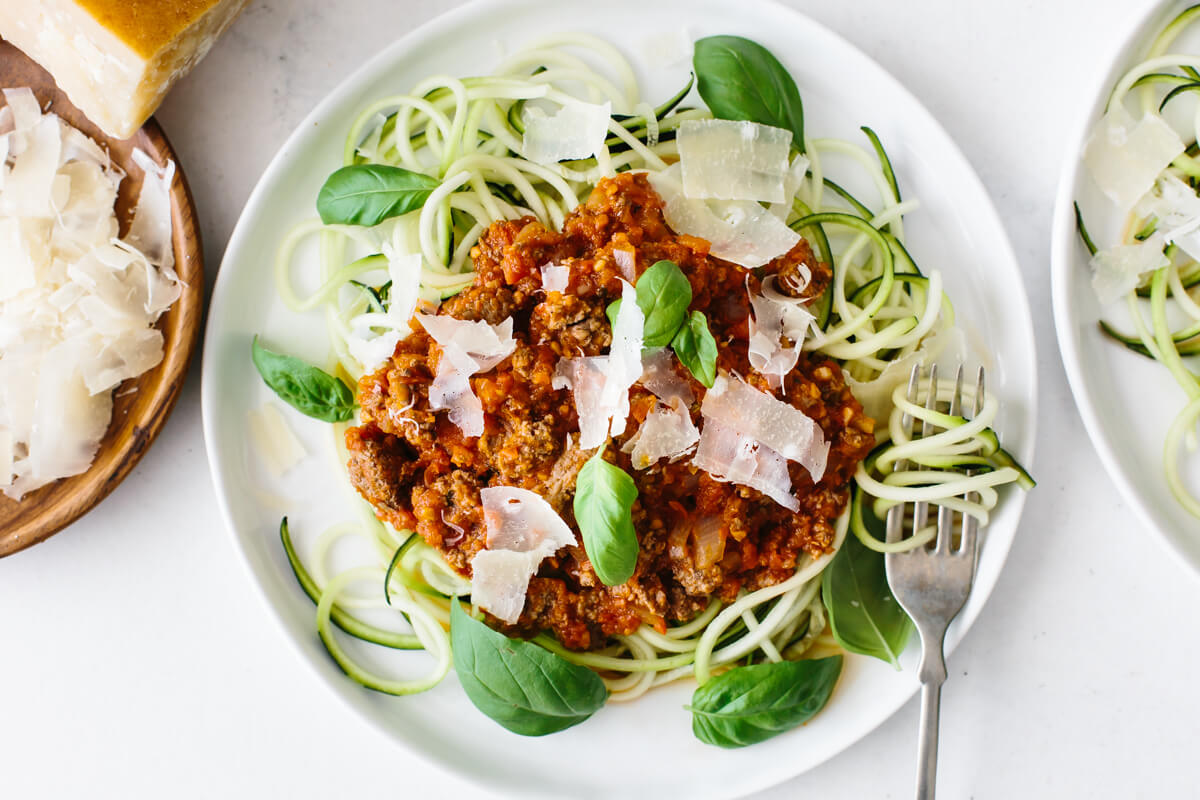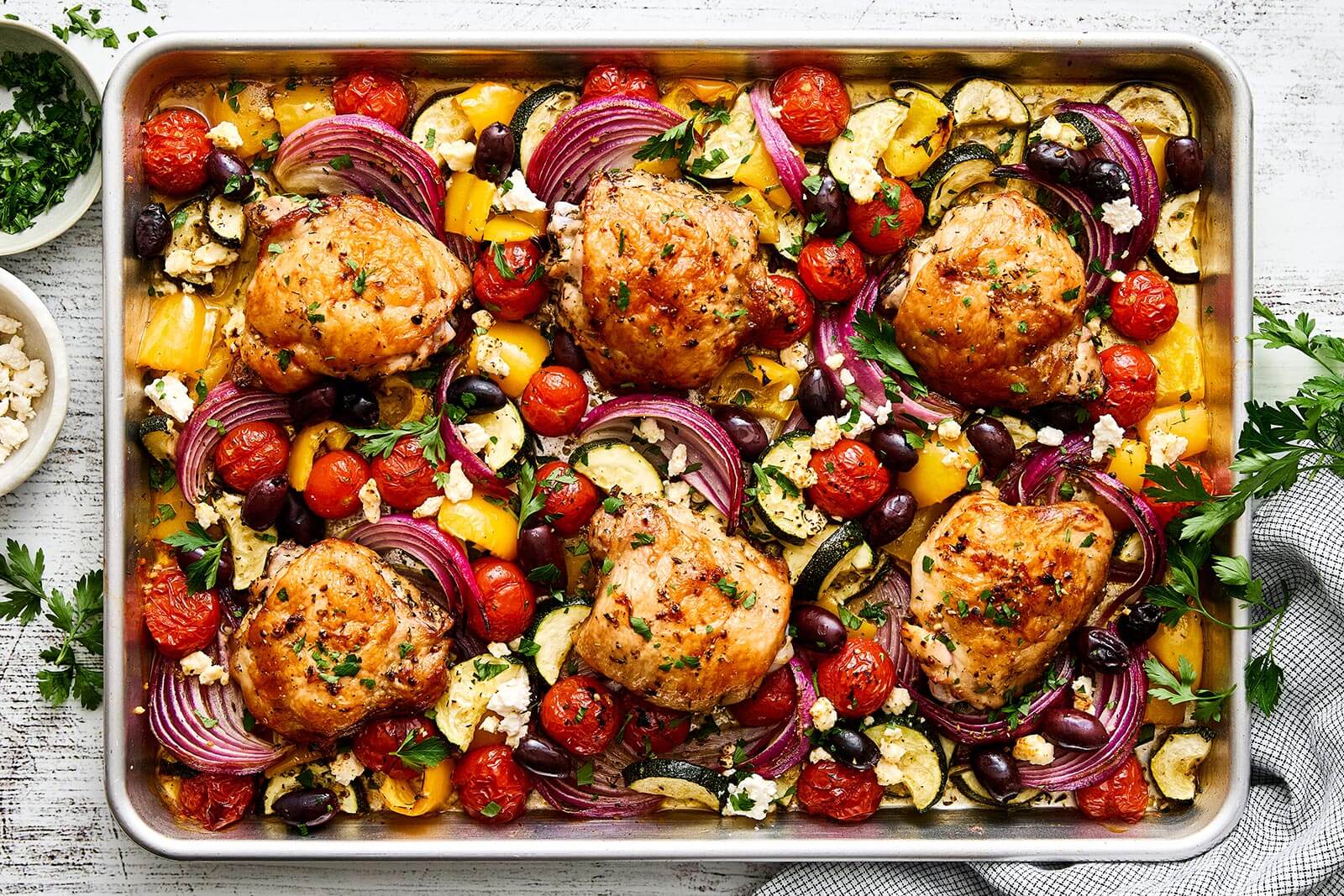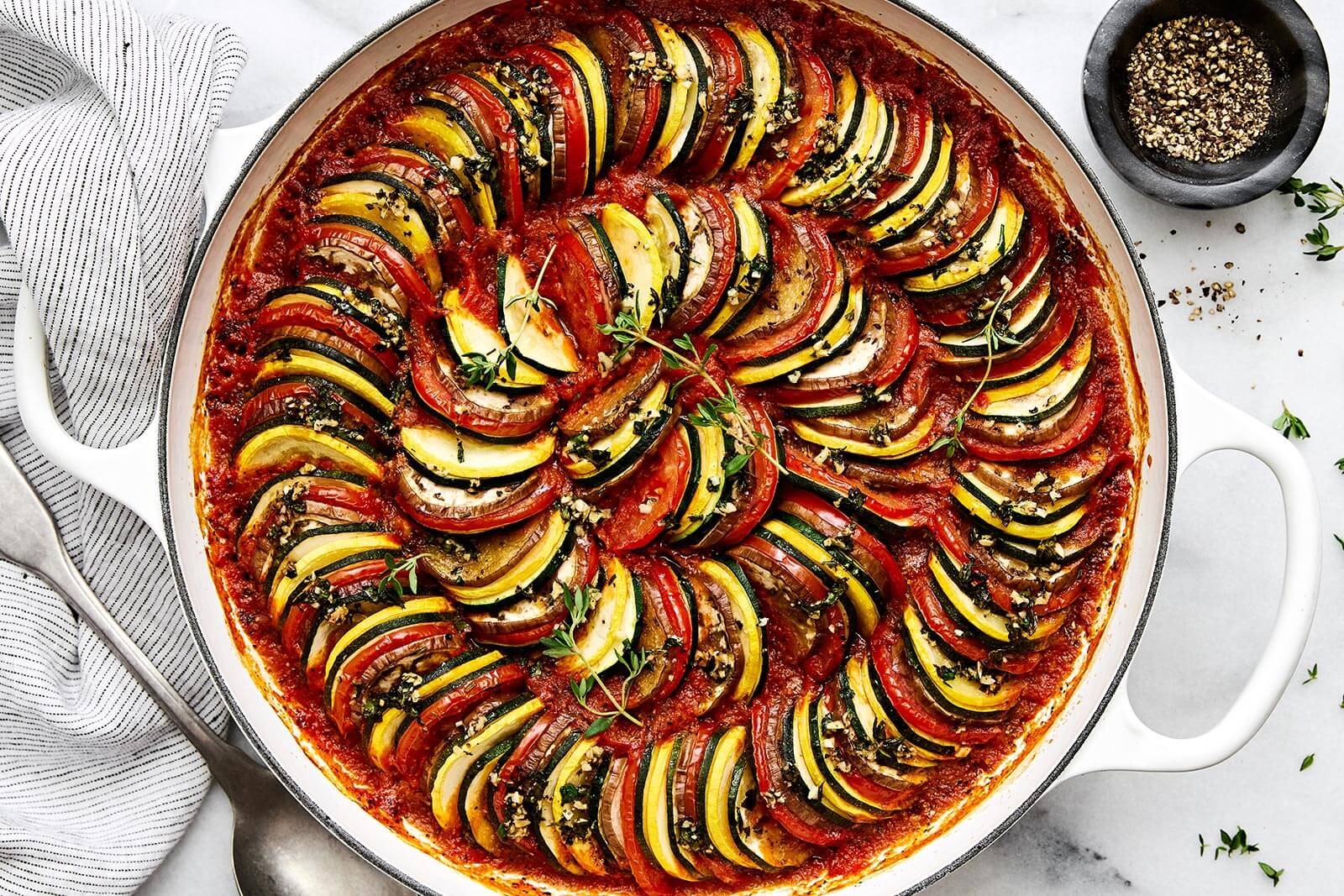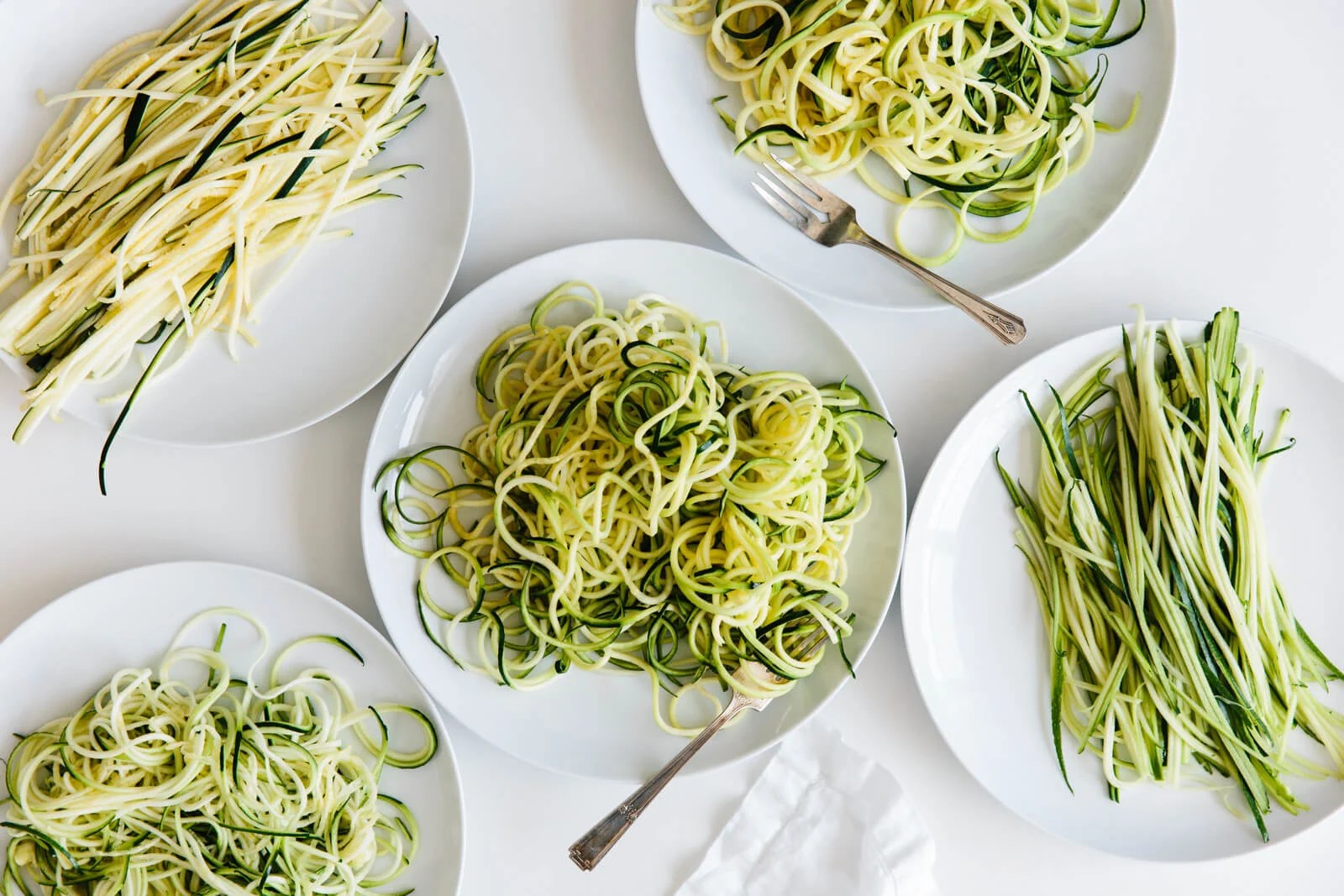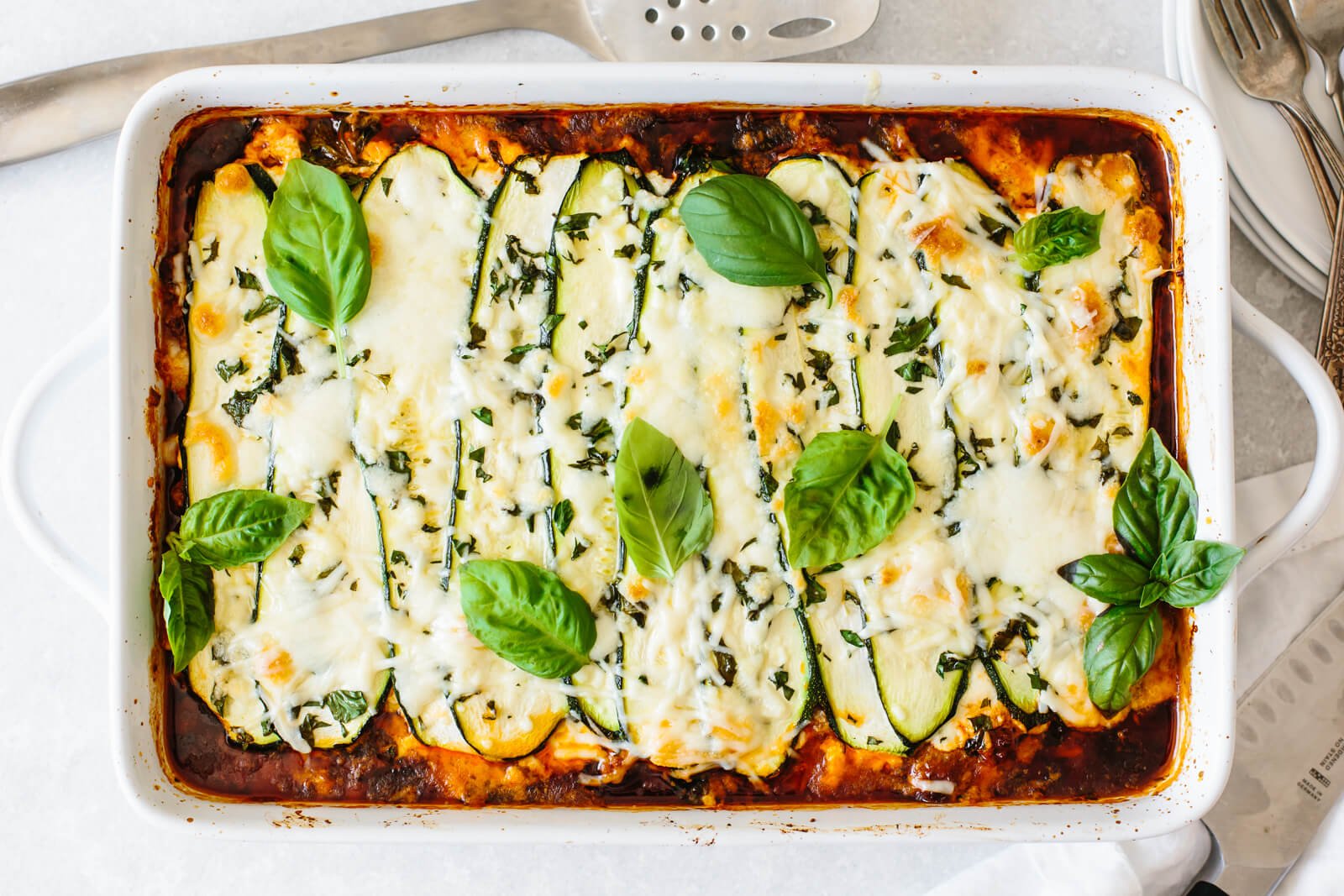This zucchini noodle spaghetti bolognese is reminiscent of an Italian beef ragu, but better. Fresh zoodles are warmed up with a layer of rich bolognese, then topped with basil and parmesan. It’s an easy weeknight meal the whole family will love!

With zucchini season just around the corner, you know what that means. More zucchini recipes for your summer menu! And if you loved my zucchini lasagna, you’re sure to love this healthier spin on a classic.
It’s a simple combination of zucchini noodles and bolognese sauce. And instead of using a store-bought pasta sauce, we’re making it from scratch today. But don’t worry. It’s easier than you think and adds that vine-ripened freshness to this summer plate.
What Is Bolognese?
When you hear bolognese, you’re probably thinking of a meaty tomato sauce. But, it’s much more than that. It transforms ground beef into something rich and appetizing.
Traditional Italian bolognese may include vegetables such carrot and celery, in addition to the meat, onions, and tomatoes. But since we’re serving the bolognese sauce on top of vegetables today, we’re keeping the sauce simple yet flavorful.


Creating An Easy, Simple Bolognese Sauce
While you can certainly use store-bought pasta sauce in this recipe, give this homemade version a try for fresh, herby goodness. I’m using beefsteak tomatoes for this recipe. But you can use plum or roma tomatoes (which have less liquid) to speed up the cooking process. Here’s how to make it.
Process the tomatoes. First, slice the tomatoes into quarters and toss them into a food processor. Pulse a few times until it’s slightly pureed.
Saute and boil. In a pot over medium heat, saute the diced onions and garlic, then stir in the tomatoes and oregano. Your sauce will thicken in about 30 minutes after much of the water has evaporated.
Cook the beef. While the tomato sauce is cooking, saute the ground beef in a large pan until it’s browned.
Mix everything together. Add some tomato paste to the sauce (which helps to thicken a bit more) and finish it off with salt, pepper and fresh basil. Then, pour the sauce into the pan and mix it in with the beef. And you’re done!


The Best Zucchini Noodle Spaghetti Bolognese
Now that your sauce is ready, all you need to do is spiralize the zucchini. In previous recipes I’ve cooked the zucchini, but today I’m keeping the zucchini raw for a more crisp texture.
With room temperature zucchini, the heat of the bolognese sauce warms it perfectly. But if your zucchini is refrigerated or you prefer it slightly cooked, there’s a few things you can do after spiralizing.
- Sauté the zoodles with a little bit of olive oil for one minute
- Blanch in a pot of boiling water for one minute
- Microwave the zoodles for one minute
When you’re done, add a serving of zucchini noodles to a plate and top with bolognese sauce. Then, garnish with grated parmigiano reggiano and fresh basil. Voila – zucchini noodle spaghetti dinner!


Bolognese Variations
Not a fan of beef? No problem. Here’s a few substitutions that will still create a delicious “meaty” mixture.
- Chicken or Turkey: use ground chicken or turkey for a lighter, low-carb option.
- Vegan Mushroom and Walnut Mix: Saute chopped mushrooms until cooked. Then add in grated carrots, onions, chopped walnuts, minced garlic and saute for another 4 minutes. Let this mixture cook with the tomato sauce.
More Easy Zucchini Recipes
Make the most of your leftover zucchini with these recipes. You’ll find flavors that are bright, zesty, chocolate-y, and sweet!
Description
This zucchini noodle spaghetti bolognese is a healthy, gluten-free weeknight dinner the whole family will love.
Calories: 224kcal | Carbohydrates: 15g | Protein: 19g | Fat: 11g | Saturated Fat: 4g | Cholesterol: 49mg | Sodium: 210mg | Potassium: 1143mg | Fiber: 4g | Sugar: 10g | Vitamin A: 2077IU | Vitamin C: 54mg | Calcium: 64mg | Iron: 3mg
©Downshiftology. Content and photographs are copyright protected. Sharing of this recipe is both encouraged and appreciated. Copying and/or pasting full recipes to any social media is strictly prohibited.
Recipe originally posted September 2015, but updated to include new information.

